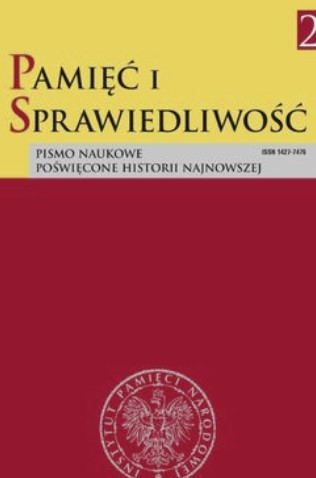Czy Ministerstwo Spraw Zagranicznych Drugiej Rzeczypospolitej było zdominowane przez byłych oficerów Wojska Polskiego?
Was the Ministry of Foreign Affairs of the Second Polish Republic Dominated by Former Officers of the Polish Army?
Author(s): Wojciech SkóraSubject(s): Diplomatic history, Political history, Government/Political systems, International relations/trade, Military policy, Interwar Period (1920 - 1939)
Published by: Instytut Pamięci Narodowej
Keywords: army officers; sanitation; militarization; the Ministry of Foreign Affairs; diplomacy; consular service; military intelligence; authoritarianism;
Summary/Abstract: After the May Coup of 1926, a few dozen (at least 43) professional officers, enjoying the trust of Józef Piłsudski, were admitted to the Polish Ministry of Foreign Affairs as full-time officials. About half of this group were military intelligence officers in the past. They left the army by orders of their superiors. Along with military attachés officially employed in the Ministry and residents of military intelligence working in the agencies of the MFA, there were over one hundred of them. They formed a noticeable group in the Ministry which in the 30s employed 1300 officials (full-time and contract). And because they usually held high-ranking positions (including the highest) – also an influential group. Changes can be seen in the MFA after 1933 indicating the transfer of military models: strictly enforced demand for professional secrecy, influence of superiors on the choice of a spouse, employment of only Polish citizens, reduction of reporting and bureaucracy, transfer to other positions without consideration of the will of the interested party, etc. The style of management of diplomacy by Minister Józef Beck, far from collegiality, somewhat authoritarian, can be associated with patterns prevailing in the army. The officers saw making the Ministry more efficient tool to implement the will of Marshal Piłsudski as the main value of their presence in the MFA. The “centralisation” of the decision-making process, corresponding to the traditional military structure, was highly valued. Civilian officials pointed to the negative effects of work of the military men: the dominance of patterns harmful in diplomacy, such as the lack of respect for individualism, combating criticism (even of unjust decisions), worship of obedience (even against common sense), the lack of professionalism and good manners.
Journal: Pamięć i Sprawiedliwość.
- Issue Year: 32/2018
- Issue No: 2
- Page Range: 440-481
- Page Count: 42
- Language: Polish

